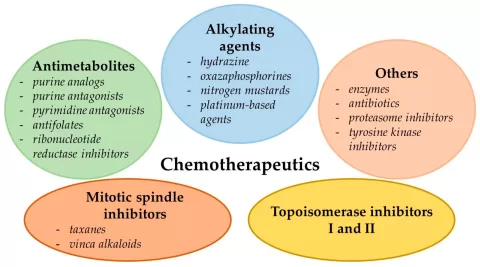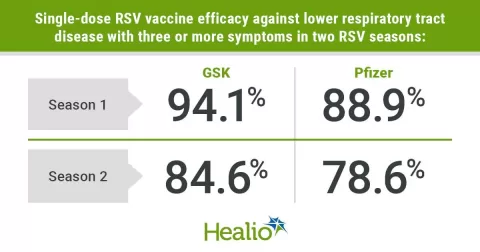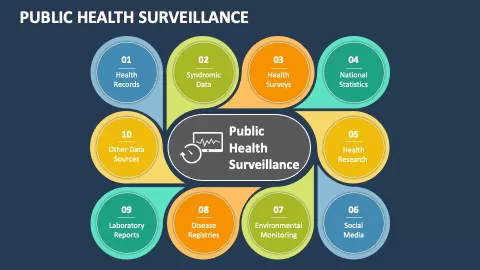Nephrotic syndrome is a complex kidney disorder often seen in children, and it manifests through significant protein leakage into the urine, leading to symptoms such as swelling and high cholesterol. This condition, classified as a form of childhood kidney disease, can pose numerous challenges for both children and their families. As parents navigate through managing nephrotic syndrome, they often seek expert nephrologist advice to ensure the best possible care and treatment plans. Our understanding of nephrotic syndrome is ever-evolving, and sharing stories like Harper’s journey can provide hope and guidance to those affected. Join us as we explore the realities of living with nephrotic syndrome, revealing insightful perspectives and helpful resources.
The term nephrotic syndrome refers to a serious kidney condition that significantly affects the body’s protein balance, particularly in the pediatric population. Often categorized under childhood kidney diseases, it poses distinct challenges that require careful management and specialized medical guidance. Families facing this diagnosis typically rely on the insights of a nephrologist to establish effective treatment strategies. The experiences of children like Harper provide valuable lessons in dealing with the intricacies of managing this kidney disorder. In this article, we will delve into the essential elements of nephrotic syndrome, examining both the medical and emotional aspects tied to maintaining a healthy lifestyle.
Understanding Nephrotic Syndrome
Nephrotic syndrome is a serious kidney disorder primarily affecting children’s health. This syndrome occurs when the kidneys are unable to filter proteins effectively, leading to excessive protein leaking into the urine. This loss of protein can lead to various complications, including swelling of the body, particularly around the eyes and abdomen, as seen in Harper’s case. It is essential for parents to recognize the symptoms early, as timely diagnosis and treatment from a nephrologist can significantly improve outcomes.
In the case of childhood kidney disease like nephrotic syndrome, parents are often faced with emotional and logistical challenges. Parents must manage daily medication regimens, routine check-ups, and variable dietary restrictions that can affect their child’s quality of life. Understanding nephrotic syndrome involves not just managing the physical symptoms, but also addressing the emotional needs of the child and family. Increased awareness can empower families to seek the best nephrologist advice available.
Harper’s Journey: A Family’s Resilience
Harper’s journey with nephrotic syndrome highlights the resilience of families facing childhood kidney diseases. Initially overwhelmed by her symptoms, Harper’s family quickly learned to manage her condition with the support of healthcare professionals. Their proactive approach included adhering to a low-sodium diet and keeping Harper’s environment as germ-free as possible, which became especially critical due to her immunosuppressants. Through surgeries and numerous hospital stays, the family’s commitment to keeping life as normal as possible is a testament to their strength.
Moreover, the family’s support network, which includes Becca’s husband and parents, plays a vital role in managing the challenges of living with nephrotic syndrome. By sharing Harper’s journey on social media platforms like TikTok, Becca has not only created a sense of community but has also raised awareness about this kidney disorder. Her initiative to document their experiences has turned into a source of inspiration both for their family and for others dealing with similar conditions.
Managing Nephrotic Syndrome: Day-to-Day Strategies
Managing nephrotic syndrome requires a comprehensive approach that encompasses medication, diet, and lifestyle adjustments. For Becca and her family, this involves a strict routine of administering medications and monitoring Harper’s protein levels in her urine daily. Regular follow-ups with a nephrologist are also crucial for adapting treatment as Harper’s condition evolves. For families facing similar diagnoses, establishing a structured schedule can be beneficial to ensure adherence to treatment and minimize any disruption in daily life.
In addition to medical management, emotional support for children dealing with nephrotic syndrome cannot be overstated. Becca and Harper engage in activities that not only divert attention from medical challenges but also foster emotional resilience. Activities such as family walks and sharing their experience online help maintain a semblance of normalcy while encouraging open conversations about feelings and fears associated with the disease.
The Importance of Ongoing Support and Education
Ongoing support and education for families dealing with nephrotic syndrome are vital in navigating this complex kidney disorder. Parents must stay informed about the latest research and treatment options. By connecting with nephrologists and participating in support groups, families can share experiences and learn effective management techniques. This exchange of information can provide emotional encouragement and practical strategies that help in managing the daily challenges posed by the illness.
Additionally, educational resources and community support can aid families in understanding the significance of diet and lifestyle changes that impact kidney health. As Harper’s story illustrates, being proactive in managing her nephrotic syndrome has positively affected her kidney function, allowing them to delay more invasive treatments such as a transplant. Parents should seek out reputable organizations that offer resources on childhood kidney diseases to better manage their child’s condition.
Raising Awareness about Childhood Kidney Diseases
Raising awareness about childhood kidney diseases, such as nephrotic syndrome, is essential for early diagnosis and effective treatment. Becca’s decision to share Harper’s story on social media platforms has not only fostered a supportive community but has also served to educate the public about the realities of living with this condition. By showcasing the symptoms, challenges, and triumphs of managing nephrotic syndrome, they can break down stigma and help others identify similar signs in their children.
Awareness can also drive funding for research aimed at better treatments for conditions like nephrotic syndrome. Communities and organizations dedicated to kidney health play a pivotal role in advocating for resources and support for affected families. As more people become informed about childhood kidney diseases, it cultivates a society that is better prepared to assist families affected by these challenging conditions, thus increasing the likelihood of positive health outcomes for children like Harper.
Emotional Impact on Families Affected by Nephrotic Syndrome
The emotional impact of nephrotic syndrome on families is significant. Parents often experience anxiety related to their child’s health, as seen in Becca’s initial fears when she sought medical attention for Harper. The uncertainty surrounding the diagnosis and the need for continuous medical interventions can be overwhelming for families. Recognizing and addressing emotional health is just as crucial as managing the physical symptoms.
Becca’s story illustrates the importance of building a support network. Engaging with family, friends, and other parents in similar situations can provide emotional relief and practical advice. Through shared experiences, families can develop coping strategies to deal with the inevitable ups and downs of managing a chronic condition like nephrotic syndrome, fostering resilience and maintaining hope.
Nutritional Guidelines for Managing Nephrotic Syndrome
Nutrition plays a vital role in managing nephrotic syndrome effectively. A low-sodium, low-liquid diet helps to alleviate symptoms such as swelling and high blood pressure. Becca has adapted her family’s meals to accommodate these dietary restrictions while focusing on nourishing Harper’s body, ensuring she gets adequate protein without putting undue strain on her kidneys. Adhering to nutritional guidelines is crucial for managing childhood kidney diseases and minimizing potential complications.
Furthermore, collaborating with dietitians who specialize in kidney disorders can provide families with tailored meal plans suited to their child’s tastes and dietary restrictions. These professionals can offer practical tips on substitutions and recipes that respect the need for low sodium while ensuring nutritional balance. By prioritizing a healthy diet, families can enhance their overall quality of life and support their child’s health in managing nephrotic syndrome.
Future Outlook for Children with Nephrotic Syndrome
The future outlook for children diagnosed with nephrotic syndrome continues to improve with advancements in medical research and technology. Continued monitoring of kidney function, as seen in Harper’s case, shows the potential for recovery and stability without immediate transplantation. Regular assessments by nephrologists can lead to timely interventions that adapt treatment plans as needed, fostering a hopeful prognosis.
With effective management, many children with nephrotic syndrome lead fulfilling lives. The emphasis on education, dietary management, and emotional support empowers families to take an active role in their child’s health journey. Becca’s commitment to maintaining Harper’s well-being illustrates the strength of family unity in facing health challenges, allowing hope to flourish amid uncertainty.
Becca’s Advocacy Efforts and Inspiration
Following Harper’s diagnosis, Becca has turned her experience into an advocacy effort aimed at raising awareness about nephrotic syndrome and childhood kidney diseases. By sharing their journey through social media and community engagements, she provides valuable insights into the struggles and triumphs of managing a chronic health condition. Becca’s dedication not only informs others but also inspires fellow families experiencing similar challenges, fostering community solidarity.
Advocacy is vital for pushing for better healthcare policies and funding for research into childhood kidney diseases. Becca’s work draws attention to the needs of children like Harper, highlighting the importance of early diagnosis and comprehensive care. By continuing to share their story and connect with various support networks, Becca is contributing to a broader movement to improve the lives of children affected by nephrotic syndrome.
Frequently Asked Questions
What is nephrotic syndrome and how does it affect children?
Nephrotic syndrome is a serious kidney disorder where the kidneys leak excessive amounts of protein into the urine. This can lead to various complications in children, such as swelling, high cholesterol, and increased risk of infections. In children like Harper, who was diagnosed at a young age, it can mean frequent medical appointments and treatments to manage the symptoms.
What are the common symptoms of nephrotic syndrome in kids?
Common symptoms of nephrotic syndrome in children include swelling around the eyes, abdomen, or legs, high levels of protein in urine, and flu-like symptoms such as fever and stomach pain. Prompt recognition of these symptoms, as seen in Harper’s case, is essential for early diagnosis and effective management.
What do nephrologists recommend for managing nephrotic syndrome in children?
Nephrologists typically recommend a comprehensive management plan for nephrotic syndrome that includes a low-sodium and low-liquid diet, regular monitoring of protein levels in urine, and medications to control symptoms. As evidenced by Harper’s journey, managing the condition often involves close follow-ups with healthcare providers.
How can parents support their children with nephrotic syndrome?
Parents can support children with nephrotic syndrome by ensuring adherence to treatment plans, providing emotional support, and maintaining a safe environment to reduce exposure to infections. Activities like outdoor walks while social distancing, as practiced by Harper’s family, can help promote physical and mental well-being.
Are there any long-term implications of nephrotic syndrome in children?
Yes, nephrotic syndrome can have long-term implications, including the risk of kidney damage or the need for a kidney transplant. Children like Harper may need ongoing treatment and monitoring to preserve kidney function and manage their overall health.
What should families expect during the treatment of nephrotic syndrome?
During the treatment of nephrotic syndrome, families can expect multiple hospital visits for tests, medication administration, and possible surgery. Support from healthcare professionals and community can provide comfort and guidance throughout this challenging journey.
How does social media help families like Harper’s cope with nephrotic syndrome?
Social media can serve as a powerful tool for families coping with nephrotic syndrome by providing a platform to share experiences, gain insights from others, and build a supportive community. Becca’s sharing of Harper’s journey on TikTok has not only raised awareness but also fostered encouragement for their family.
What lifestyle changes might be necessary for a child diagnosed with nephrotic syndrome?
A child diagnosed with nephrotic syndrome may require lifestyle changes including dietary modifications (like a low-sodium diet), increased medical monitoring, and precautions to avoid infections. These changes help manage the condition effectively and promote better health outcomes.
| Key Point | Details |
|---|---|
| What is Nephrotic Syndrome? | A kidney disorder in which kidneys leak excessive amounts of protein into the urine, leading to various health complications. |
| Symptoms Observed in Harper | Initially flu-like symptoms, fever, and stomach pain leading to kidney diagnosis. |
| Diagnosis Timeline | Officially diagnosed on March 14, 2024, after tests showed protein leakage in urine. |
| Treatment and Lifestyle Changes | Includes low-sodium, low-liquid diet, weekly infusions, and immunosuppressants. |
| Surgery and Hospital Visits | Harper has undergone two surgeries, four overnight hospital stays, and numerous infusion appointments. |
| Social Media Impact | Becca shares Harper’s journey on TikTok, garnering millions of views and positive responses. |
| Current Condition | Harper’s kidney function has improved from 35% to 60%, delaying the need for a transplant. |
| Becca’s Approach | Focuses on maintaining normalcy, testing urine, and encouraging outdoor activities while social distancing. |
Summary
Nephrotic Syndrome is a complex kidney disorder characterized by excessive protein leakage into urine, leading to significant health challenges. The emotional toll on families, like that of Becca and her daughter Harper, is profound as they navigate symptoms and treatments. While the initial diagnosis can be overwhelming, through resilience, support, and sharing experiences on platforms like TikTok, families can find strength and community. Harper’s improvement and the family’s commitment to manage her health highlights the importance of understanding nephrotic syndrome and the necessity of a supportive network.
The content provided on this blog (e.g., symptom descriptions, health tips, or general advice) is for informational purposes only and is not a substitute for professional medical advice, diagnosis, or treatment. Always seek the guidance of your physician or other qualified healthcare provider with any questions you may have regarding a medical condition. Never disregard professional medical advice or delay seeking it because of something you have read on this website. If you believe you may have a medical emergency, call your doctor or emergency services immediately. Reliance on any information provided by this blog is solely at your own risk.








